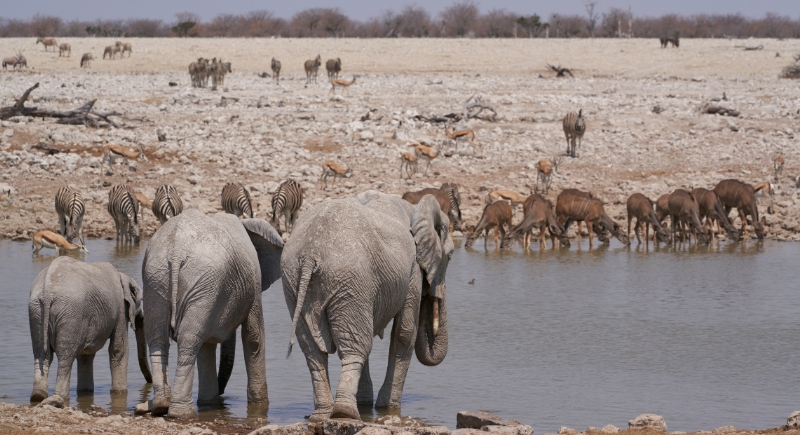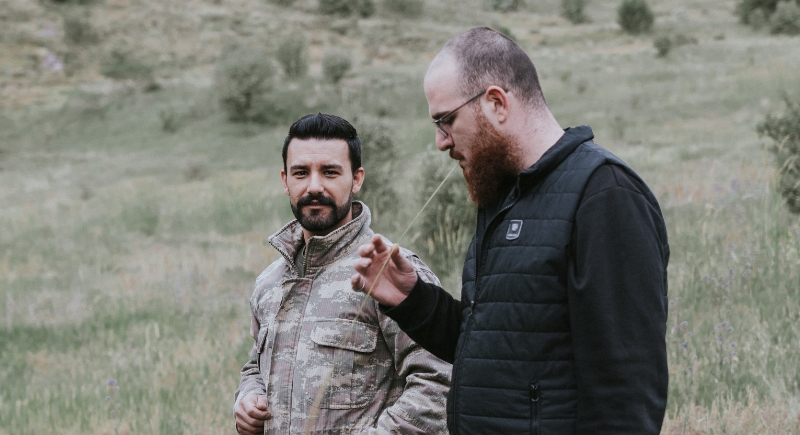Forget Lions This Is the One Predator in Africa That Scares Everyone Witlesså
Lions have the physical power and reputation, but they’re not the species other animals are scared of the most. Field research in South Africa’s Greater Kruger National Park revealed a surprising truth: mammals react with much greater panic to human voices than to lion growls or even gunfire. Conservation scientists spent months recording wildlife reactions to different sounds, and the data showed a consistent pattern.
The most feared predator wasn’t a top carnivore at all. It was us. Human presence triggers an overwhelming, instinctive fear across nearly every major mammal on the savanna—even in areas where hunting is banned and direct threats are rare.
Animals React More Strongly to People’s Voices than Lion Growls

Image via Getty Images/Jeremy Richards
Researchers used hidden camera-and-speaker systems placed at waterholes in the park to record how mammals responded to different audio cues. These included growling lions, barking dogs, gunshots, and people speaking in local languages. The study captured over 15,000 individual reactions across 19 mammal species. The results showed that human speech caused more animals to flee than any other sound.
Lion vocalizations did provoke responses, but not at the same level. Rhinos, giraffes, leopards, zebras, elephants, hyenas, and impalas all abandoned the water sources more quickly and more often after hearing human conversations. Experts made sure to keep the volumes realistic to avoid exaggerating reactions, which makes the pattern even more revealing.
In the majority of cases, the animals didn’t just move away; instead, they ran. These mammals have spent generations near people, and still, the presence of conversations created extreme stress. Despite conservation protections, the sense of danger remains deeply entrenched in how these animals behave across the savanna.
Human Predation Leaves Long-Term Effects on Wildlife Behavior
The belief that animals will eventually adjust to humans if left unharmed doesn’t hold up under scientific observation. In the Kruger study, even where hunting was restricted, wildlife continued to associate spoken language with immediate danger. Professionals believe this reaction is a biological response shaped over thousands of years.

Image via Pexels/M.Emin BİLİR
Unlike natural predators, humans target species across all sizes and age groups with the help of tools and tactics that increase efficiency and reach. Studies show that humans kill prey at rates far higher than any other carnivore.
The researchers concluded that the widespread fear mammals show toward humans is not situational or local, but a survival instinct. They also observed that chronic fear alone may reduce population growth in vulnerable species like giraffes. For conservation work, this information opens up both challenges and potential tools. The perceived threat of humans might even be used to steer wildlife away from poaching zones using sound deterrents.
Fear Of People Alters Movement and Survival Decisions
This response to human voices isn’t just a short-term reflex, but brings significant changes in how animals navigate their daily routines. Species that depend on access to water, like giraffes, zebras, and impalas, may abandon drinking spots if they associate the area with human presence.
These repeated disruptions push animals into less ideal habitats and make them more vulnerable to hunger, dehydration, or actual predators. Even in non-hunted regions, wildlife treats the sound of humans as a major threat.